Results
-
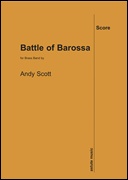 £25.00
£25.00BATTLE OF BARROSSA (Brass Band Score) - Scott, Andy
Brass Band score only. For brass band & narrator and is one continuous movement. The piece tells the story of the famous Battle of Barossa in March 1811, with musical sections depicting events as they unravel. Duration: 16:00
Estimated dispatch 7-14 working days
-
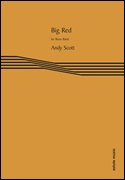 £15.00
£15.00BIG RED (Brass Band Score) - Scott, Andy
Brass Band score only. This piece belies its power and beauty, building up in waves of subtle ensemble layers. Dur: 4:00
Estimated dispatch 7-14 working days
-
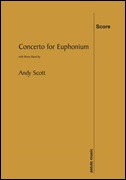 £20.00
£20.00CONCERTO FOR EUPHONIUM (Brass Band Score) - Scott, Andy
Brass Band score only. The 'Concerto for Euphonium' with Brass Band is scored in three movements: The Lure of the Red Jacket; Far Beyond the Stars; The Dragon's Den. The Lure of the Red Jacket responds musically to these ideas and attitudes; a non-relenting riff that signifies the hard slog of practice, scorings which find members of the band supporting the soloist, all the time the soloist putting together new riffs and ideas. Stylistically all this happens within a frame of minimalism and funk. Far Beyond the Stars is a simple folk-like melody that is stated by the soloist, which develops with different harmonic backdrops being introduced. The poignant words form the focus of the emotional intensity of this piece. The Dragon's Den is a fierce and fiery fusion of energy, virtuosic playing and intricate ensemble work, the finale of the Concerto for Euphonium draws upon the composers experience of big band and small group performance and writing. Dur: 15:00
Estimated dispatch 7-14 working days
-
 £25.00
£25.00DARKWOOD (Brass Band Extra Score) - Price, Dan
Brass Band Extra Score only. National Brass Band Championships of Great Britain Area Test Piece 2017 - Third Section.
Estimated dispatch 7-14 working days
-
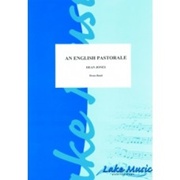 £15.00
£15.00ENGLISH PASTORALE (Brass Band Extra Score) - Jones, Dean
2015 National Championships Regional Testpiece - 4th Section. Extra Score only. This set of variations was composed for the ISB's tour of Australia, New Zealand and Japan in 1995. Handel's majestic tune is associated with the great resurrection hymn 'Thine is the glory, risen, conquering Son' and melodic fragments of the tune form the basis of the four variations. The tune is heard in its entirety at the beginning and near the end and the piece finishes with a vigorous coda. Duration: 13:00
Estimated dispatch 7-14 working days
-
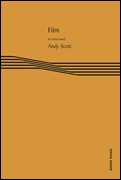 £15.00
£15.00FILM (Baritone Solo with Brass Band Score) - Scott, Andy
Brass Band score only. A feature for solo baritone in a melodic & atmospheric Ennio Morricone inspired piece. Dur: 3:30
Estimated dispatch 7-14 working days
-
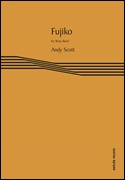 £15.00
£15.00FUJIKO (Cornet Solo with Brass Band Score) - Scott, Andy - Fieldhouse, Jim
Brass Band score only. Fujiko is cinematic soundscape that reflects its Japanese roots. A feature for solo cornet that commences with a simple folk-like melody, and builds to a powerful and emotive climax, before an atmospheric and calm ending. Dur: 5:00
Estimated dispatch 7-14 working days
-
 £31.00
£31.00GALLIMAUFRY SUITE (Brass Band Extra Score) - Harper, Philip
2013 Butlins Third Section. Extra Score only. The four movements are: 1. Fanfare & Theme 2. Song 3. Hymn 4. Toccata & Finale. Duration:11:00
Estimated dispatch 7-14 working days
-
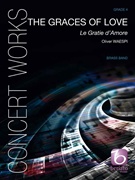 £18.99
£18.99GRACES OF LOVE (Le Gratie d'Amore) (Brass Band Extra Score) - Waespi, Oliver
2015 National Championships Finals Testpiece - Third Section - Extra Score only. The Graces of Love (Le Gratie d'Amore) is the title of a book published in 1602 by Cesare Negri, the famous dance master of the Milan court in the Renaissance. It contains numerous dance tunes and precise descriptions of courtly dances. It also includes the tune Il bianco fior (The White Flower) on which the first movement of the present piece is based. A vigorous dance in three-four, it leads to an acceleration and a sudden shift to an even meter towards the end. The second movement, calm and contemplative in character, features the tune Vaghe bellezze ... (Veiled Beauty ...). Widely spaced melodic parts surround two solos during which the tune is varied and developed. Finally, the third movement contains a saltarello with a hypnotic rhythm, ending the work with flair and gusto. Duration: 11:30
Estimated dispatch 7-14 working days
-
 £29.95
£29.95LAND OF THE LONG WHITE CLOUD, The - Aotearoa (Brass Band Extra Score) - Sparke, Philip
Extra Score only. First Section - National Brass Band Championships of Great Britian Area Test Piece 2017. Recorded on Polyphonic QPRL069D Un Vie de Matelot, Polyphonic QPRL065D Double Champions
Estimated dispatch 7-14 working days
